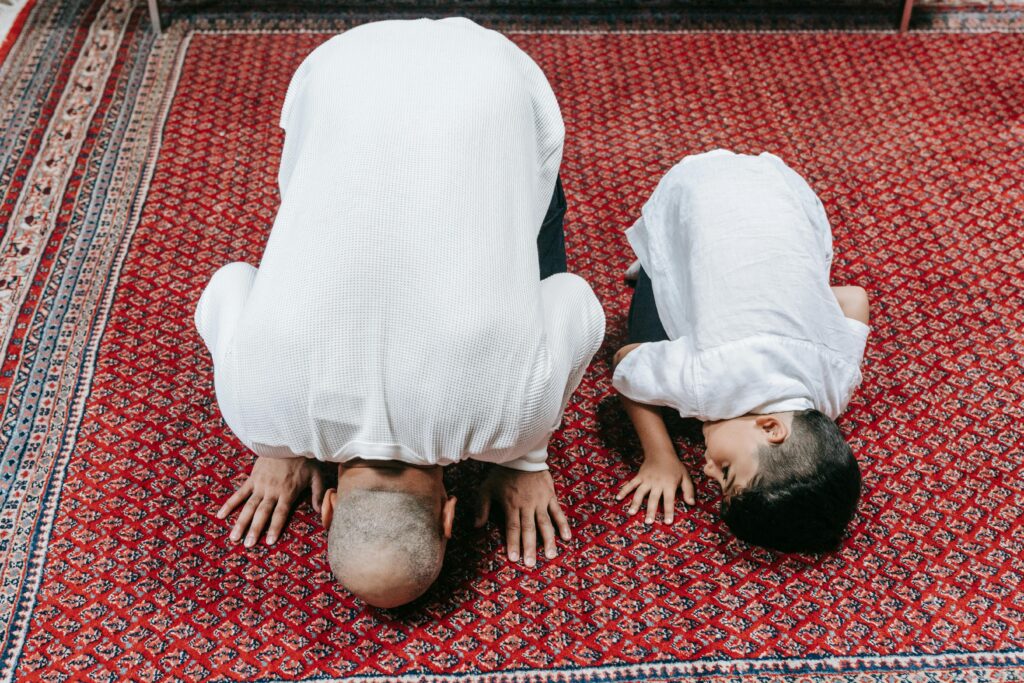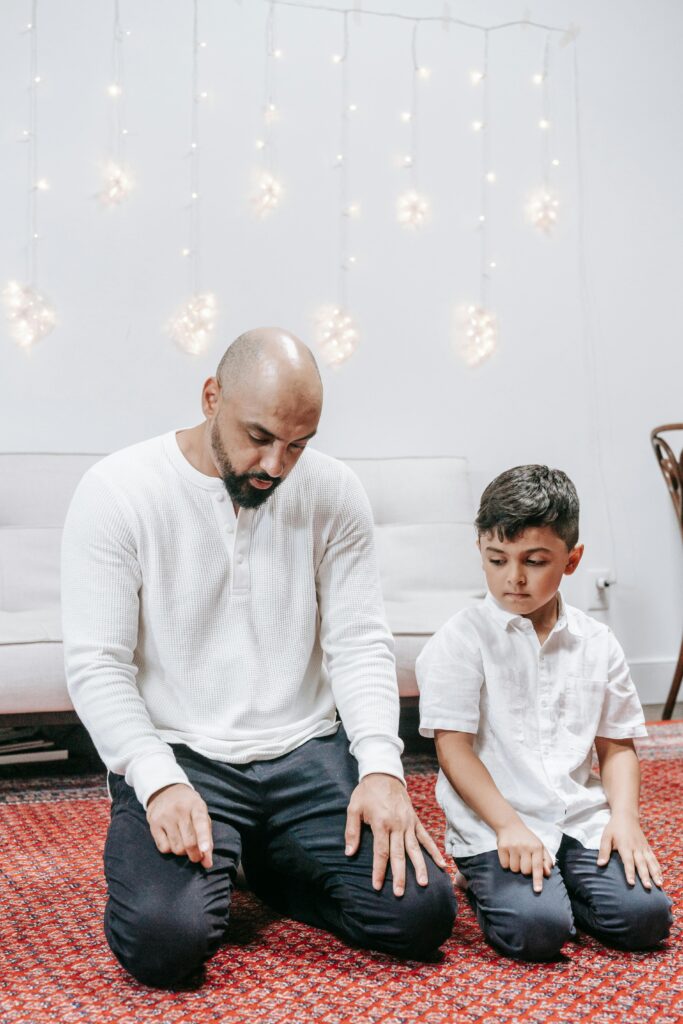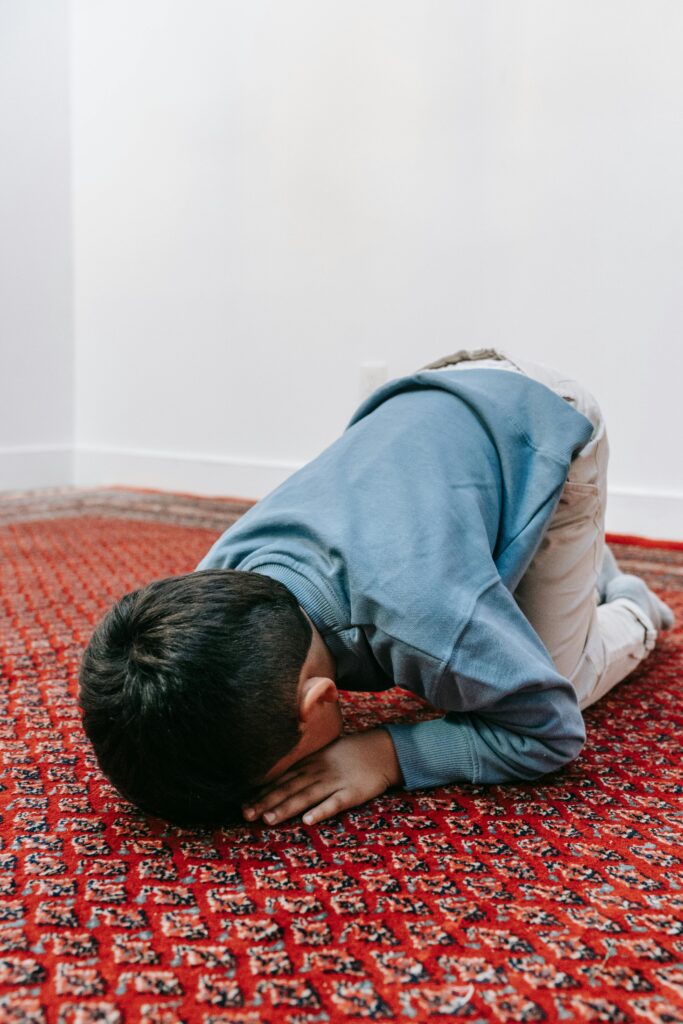Islamic Studies for Kids:
Nurturing Young Hearts
Empowering the Next Generation with Islamic Knowledge
Learning about Islam from an early age helps children understand their religion and become better Muslims and individuals. In Islamic studies for kids, they learn essential aspects such as the significance of good names, the Prophet’s teachings, and important values like honesty and kindness. This education helps them lead a righteous life while understanding the core principles of Islam, which promotes peace and submission to Allah.At MuhammadOnlineQuran.com, we offer an engaging and structured Islamic Studies course designed for children aged 4–12. Our program blends traditional teachings with modern, interactive methods to instill a strong foundation in Islamic values, etiquette, and understanding.

Course Highlights
Age-Appropriate Curriculum: Tailored content that aligns with the cognitive and emotional development of children.
Interactive Learning: Utilizes storytelling, games, and visual aids to make learning enjoyable.
Certified Instructors: Experienced teachers proficient in both Islamic studies and child education.
Flexible Scheduling: Classes available at various times to accommodate different time zones and routines.
Progress Tracking: Regular assessments and feedback to monitor and encourage student development.
Parent Involvement: Tools and resources to keep parents informed and engaged in their child’s learning journey.
What Your Child Will Learn?
Foundational Islamic Beliefs: Understanding Tawheed, Prophethood, and the Articles of Faith.
The Five Pillars of Islam: In-depth exploration of Shahada, Salah, Zakat, Sawm, and Hajj.
Prophet Muhammad’s (PBUH) Life: Stories and lessons from the Seerah to inspire good character.
Islamic Etiquette: Proper manners and behavior in various aspects of life.
Arabic Language Basics: Introduction to Arabic letters and simple words to aid Quranic understanding.

Interactive Learning Features
Gamified Lessons: Engaging activities that make learning fun and memorable.
Visual Storytelling: Animated stories that bring Islamic teachings to life.
Reward System: Certificates and badges to motivate and celebrate achievements.
Live Sessions: Real-time classes with opportunities for Q&A and interaction.
Downloadable Resources: Worksheets, quizzes, and coloring pages to reinforce learning offline.

Why Choose Us?
Holistic Approach: We focus on both spiritual and moral development.
Safe Learning Environment: Classes conducted in a secure, online setting with parental supervision options.
Global Accessibility: Students from all over the world can join and learn together.
Cultural Sensitivity: Content is designed to be inclusive and respectful of diverse backgrounds.
Continuous Support: Dedicated support team available to assist with any queries or concerns.
Course Structure
Here is a gllimpse of our course.
Week One
| Introduction to Islam |
| Storytelling & Discussion |
Week Three
| Life of Prophet Muhammad (PBUH) |
| Animated Video Lessons |
Week Five
| Arabic Language Basics |
| Animated Video Lessons |
Week Two
| The Five Pillars |
| Interactive Activities |
Week Four
| Islamic Manners |
| Role-Playing Scenarios |
Week Six
| Review & Test |
| Online Test |
Frequently Asked Questions
What is Islamic Studies for kids?
Islamic Studies for kids is an educational program designed to teach children about the core beliefs and practices of Islam. It includes learning about the Five Pillars of Islam, the life of Prophet Muhammad (PBUH), Islamic history, ethics, and daily practices such as prayer and fasting.
At what age should children start learning Islamic Studies?
Children can begin learning Islamic Studies as early as 4 years old. At this age, education focuses on simple concepts, stories, and visuals to build a strong foundation.
What topics are covered in Islamic Studies for kids?
Key topics include:
The Five Pillars of Islam
Stories of the Prophets
Islamic manners and etiquette
Daily prayers and supplications (duas)
Islamic festivals like Eid and Ramadan
Basic Arabic words and phrases
Understanding Islamic values such as kindness, respect, and honesty
How can Islamic Studies be taught to kids?
Effective methods include:
Storytelling to impart moral lessons
Using visuals and interactive activities
Incorporating songs and rhymes
Engaging in discussions and role-playing
Utilizing online resources and games
Is it necessary to enroll in an Islamic school to teach Islamic Studies?
No, it’s not necessary. Parents can teach Islamic Studies at home using online resources, books, and interactive tools. Online platforms offer structured courses and materials tailored for children’s learning.
How can I make Islamic Studies engaging for my child?
To make Islamic Studies engaging:
Use colorful books and educational videos
Incorporate crafts and hands-on activities
Celebrate Islamic holidays with special activities
Encourage questions and discussions
Create a reward system for achievements
. Can Islamic Studies courses be integrated with regular school curricula?
Yes, many Islamic Studies programs are designed to complement K-12 curricula. They can be integrated into daily routines or weekend schedules, providing a holistic educational experience.
Let's Gain Lasting Blessings Of Allah
Have questions or need more information? Contact us to start your path to unlock divine guidance, deepen your faith and develop a lifelong relationship with the Quran.
- +92 3014227215
- Faisalabad ,Pakistan
